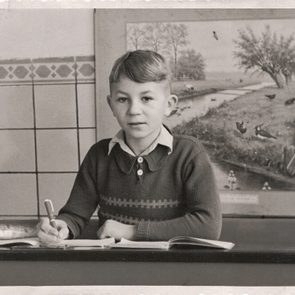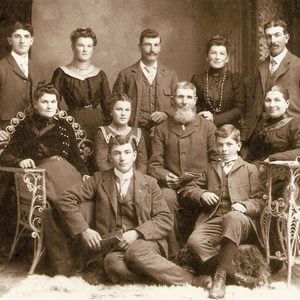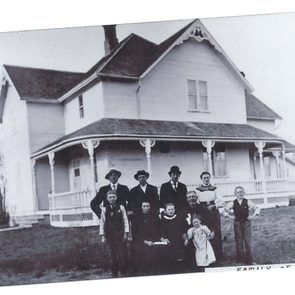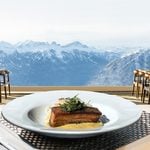As War Brewed in Europe, My Parents Set Their Sights on a New Life in Canada
Lured by the promise of plentiful and affordable farmland, a young Swiss family made Canada their home in the late 1930s.
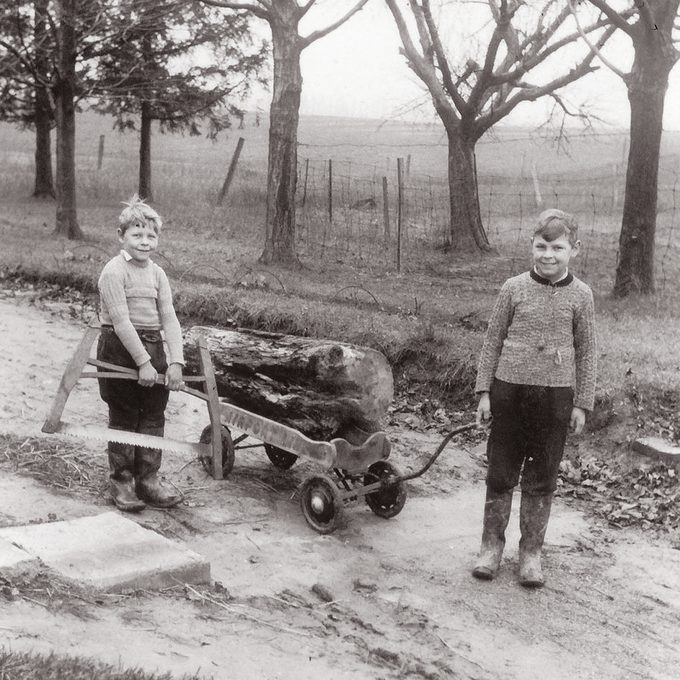
Back in 1937, my parents owned a small nursery in a village close to Lake Constance, near the border between Switzerland and Germany. Swiss people were well aware of, and concerned about, what was happening across the border in Germany, because Hitler and the Nazis were obviously on the rise. Around the same time, the Canadian government was advertising to the world that cheap land was available in Canada.
After the First World War, Canada settled many returning soldiers on vacant farmland. During the Depression, it did not take long before these new farmers, often with no actual farming experience, had to move to the cities to find work or face starvation. So, the Canadian government’s way of thinking seemed to be, why not settle a bunch of land-hungry people from Europe on all of this empty land?
You can hardly imagine the effect that seeing almost limitless land being made available at bargain prices had on European farmers trying to make a living off of a tiny half-acre plot. No wonder Canada, although far away, was so tempting for so many, my parents included.
On the Move
As a seven-year old, I was not privy to how our big move unfolded, but I assume everything was sold; clothing and other goods were packed; and tickets were bought. We were scheduled for departure in late August or early September 1938, but before that time arrived, history intervened. In early March of that year, Hitler annexed Austria and our plans were put on hold.
Then, in September 1938, in response to Hitler’s unwavering ambition to annex the Sudetenland, a region of western Czechoslovakia that was home to some 800,000 people, mainly German speakers, British Prime Minister Chamberlain went to Munich to meet with Hitler. Not wishing to provoke a war, Chamberlain chose the path of appeasement by signing the Munich Agreement, essentially enabling Hitler to have his way. With the rumblings of war silenced for a time, life returned to “business as usual.”
Being a youngster at the time, the historical events taking place around me did not fully capture my interest. There is one memory, however, that I can still see vividly in my mind’s eye: In mid-September 1938, the Graf Zeppelin was launched from Friedrichshafen, Germany, just across the lake from us. On its maiden flight, the huge airship travelled over our town accompanied by what seemed to this young boy’s eyes to be hundreds of Messerschmitt fighter planes.
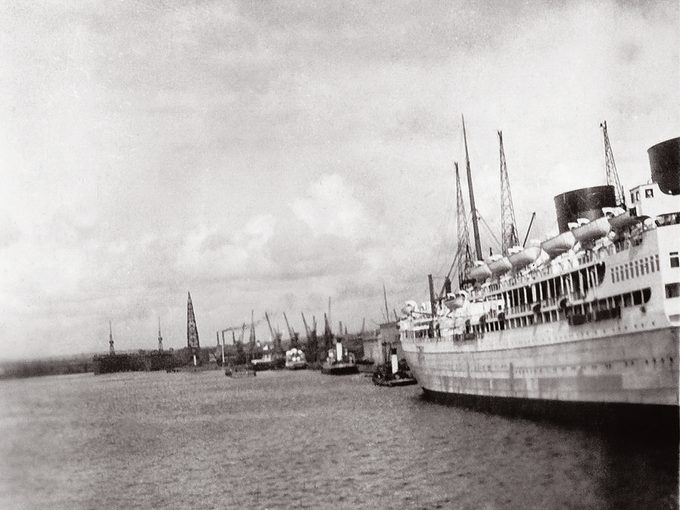
Crossing the Atlantic
The end of that September saw us on our way to Le Havre, France, to board the SS Aurania, which would take us to Canada. Our small state room and the large dining hall are the first things that come to mind as I recall our time onboard.
I also remember that we sailed directly into a fierce North Sea storm. For two whole days, my brother Rene and I were the only people out and about in the dining room. The crew found us a safe place on deck to watch the storm. The ship was a mid-sized passenger vessel, yet the waves towered over it in the storm. As the boat started to climb upwards from the bottom of a trough, the stern of the ship would go completely under water. Likewise, when we crested a wave, the ship’s propellers would poke out above the water line, and the whole ship would shake, then the bow would dip deep under water as the ship reached the next trough. As kids, we thought this was all great fun!
As we neared Halifax, an iceberg was spotted and this conjured up fearful thoughts of the Titanic among the passengers. Thankfully, we sailed right past it without incident, ending our ocean voyage in Quebec City.
From there, we spent three days and nights on a train to Toronto. All we saw through the window was spruce forest, causing Mother to wonder what we had gotten ourselves into.
In Toronto we stayed on Bloor Street, near High Park. Dad spent most days tracking down farms for sale in the outlying regions. Mother informed him that the one and only thing she wanted included in any farm purchase was a good house, because many of the available farms had old houses in bad repair.
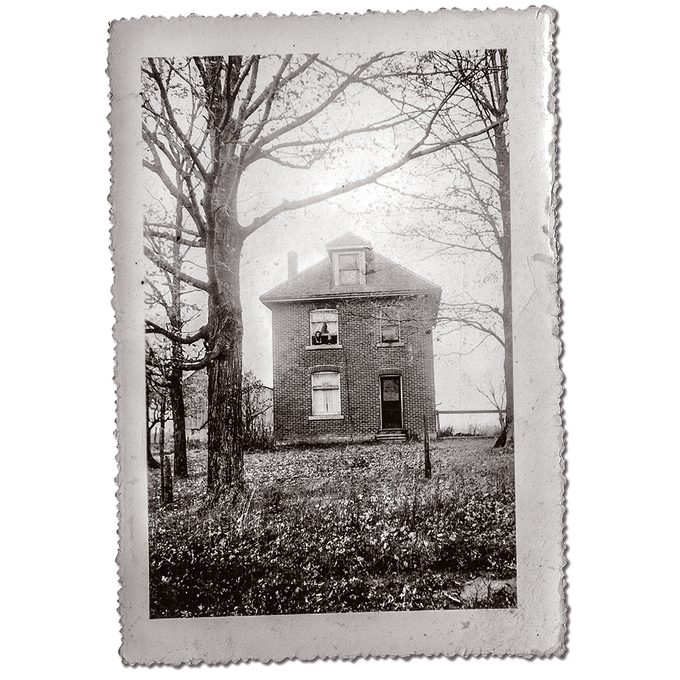
A New Home
On days when Dad was not out looking at farms, we would walk to High Park to enjoy some family time together. Mother was taken aback to see that the bridges in this wonderful parkland were nothing more than cut-down trees dropped over the creeks and hollows, smoothed over a little bit on the topside. Still, it was a magical experience for us in a brand new country! On the way home, we would stop at a local eatery called the White Grill for a hot chocolate—it was so good that I remember that hot chocolate to this very day. We had all our meals at the White Grill, too.
Eventually, Dad found a farm with a solid, two-storey brick house and a decent barn. There was no hydro or running water, however, and we had a Quebec heater for warmth.
Our new home was situated in Glanford Township, near Mount Hope and Caledonia. The day after we settled in, Dad took me to the local school. There were eight grade levels being taught in one room by a young teacher, who appeared to be just out of school herself. Having a kid dropped on her who spoke virtually no English must have been a shock for her! Having attended school for one year in Switzerland, where discipline was strict, I was surprised by the casual discipline in effect here. Not understanding a word, the only thing I could follow was math. I found it odd that many of the Grade 8 students had trouble with problems we solved in Grade 1 back in Switzerland.
You have to remember in those days there were no English as a Second Language programs, systematized health care or other services to help immigrants acclimatize to their new surroundings. Newcomers essentially swam on their own initiative or sank; nobody really noticed or cared what happened to immigrants all that much. In those days, immigrants were often regarded as “damn foreigners,” especially if you spoke a language that sounded like German. But my parents and, by extension, my brother Rene and I, were determined to build a new life here, and thankfully we were able to do so.
We all became Canadian citizens and the family has now been in Canada for decades. Both Rene and I put down solid roots and have made a good living here. We were also fortunate to marry and to raise wonderful families of our own, for whom Canada is their country of birth. Rene and I relished the freedom we had here when we first started out. In the old country, everything was controlled—you needed a license to do anything. Here in Canada, we were free to try different options—if one thing failed, you could pick yourself up and try your hand at something else.
I feel my brother and I have made a real contribution to our new homeland. I’m now in my late 80s, and I thank Canada for a great life.
Next, read the powerful story of how an act of kindness meant the world to one postwar immigrant family.
